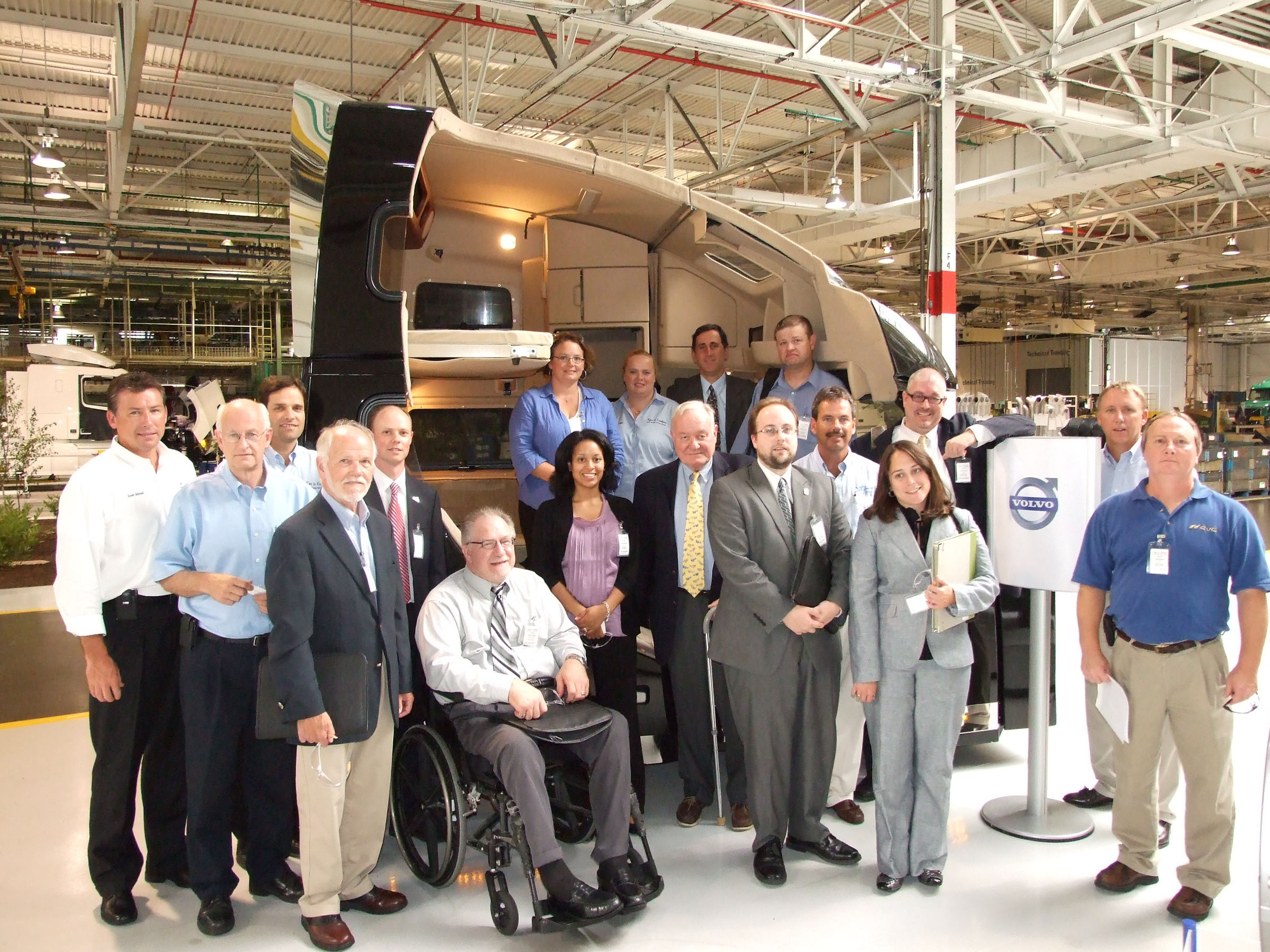Job creation is goal of Virginia Tech project with transportation-related sector in Southwest Virginia

The same Virginia Tech research expertise that is creating cars of the future for blind drivers and new-age vehicles for the military is now bolstering the transportation-related industry cluster in Southwest Virginia. Under a $1.67 million grant from the U.S. Department of Commerce, College of Engineering faculty will provide the kind of technical assistance that allows companies to grow and create jobs, says John Provo, interim director of Virginia Tech’s Office of Economic Development.
In addition to product development and process improvement, faculty members also will guide the region’s 8,000-worker-strong industry in a third key area: integration of green technology into plants and products, says Provo, Virginia Tech’s principal investigator on the grant. Volvo, which provided a $175,000 contribution toward the project, has been a leader in introducing green technology in its plants.
Companies eligible to apply for money and technical assistance are those that manufacture transportation equipment or provide services that support those businesses in the 14-county corridor from Bristol to Roanoke.
“The idea is to strengthen the supply chain and create new products that will help these companies flourish without them feeling the need to pull up stakes and move outside the United States,” Provo says. “Instead of looking to China for their solutions, they can look to Chilhowie.”
“I am proud of Virginia Tech’s leadership in pulling together multiple community partners to bring economic vibrancy back to Southwest Virginia,” says Virginia Tech President Charles W. Steger. “The university’s role in marrying its research expertise with regional planning goals is a great formula for creating high-wage manufacturing jobs. We look forward to working with Volvo and others as the three-year project progresses.”
Patrick Collignon, vice president and general manager of Volvo Trucks North America at the New River Valley Plant, said, “We are always seeking innovative ways to differentiate ourselves through new technologies and manufacturing processes. Virginia Tech’s leadership is helping drive competitive advantages for Southwest Virginia.”
The project – called the Western Virginia Transportation Equipment Manufacturing Competitiveness Initiative – involves partners such as the New River Valley Planning District Commission, the Mount Rogers Planning District Commission, and the Roanoke Valley-Alleghany Regional Commission.
Engineering faculty working on the project are
- Robert Taylor, research professor in the Grado Department of Industrial and Systems Engineering and director of Virginia Tech’s Center for High Performance Manufacturing;
- Jaime Camelio, assistant professor in the Grado Department of Industrial and Systems Engineering; and
- Sean McGinnis, program chair of Green Engineering.
In addition to Virginia Tech, the Virginia Philpott Manufacturing Extension Partnership also will provide technical assistance.
More than a dozen companies in the corridor employ from 200 to 300 people in the field. Transportation equipment manufacturing is Virginia’s second leading export industry.
“The technical assistance Virginia Tech has to offer can help companies gain market share in this industry, and that leads to more jobs in this region,” Provo says.
"The federal funds will help transportation manufacturing businesses in Southwest Virginia develop new products, improve manufacturing processes, and implement new manufacturing technologies that will make the businesses more competitive in today’s economy and help them create new and retain existing high-wage manufacturing jobs for Southwest Virginia residents," U.S. Rep. Rick Boucher says. Boucher announced the grant this past Tuesday.
In making the grant application, Office of Economic Development staff found examples of products that need to be redesigned and factories that would benefit from techniques to reduce the amount of floor space required for production.




